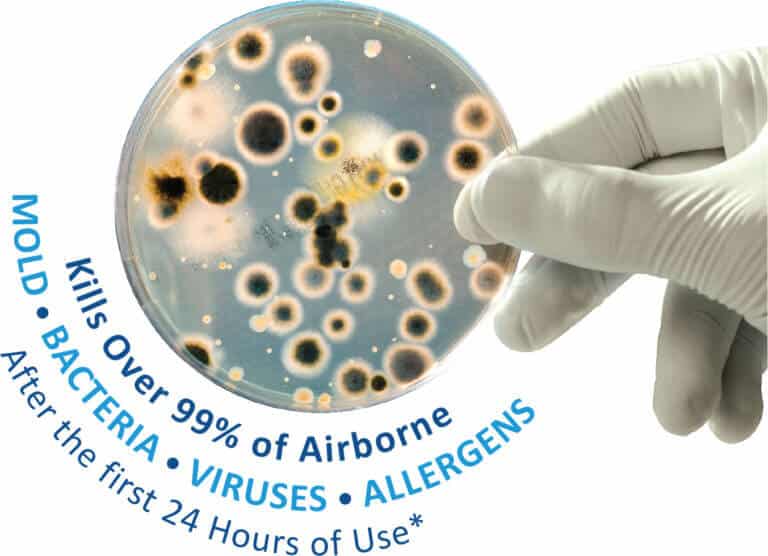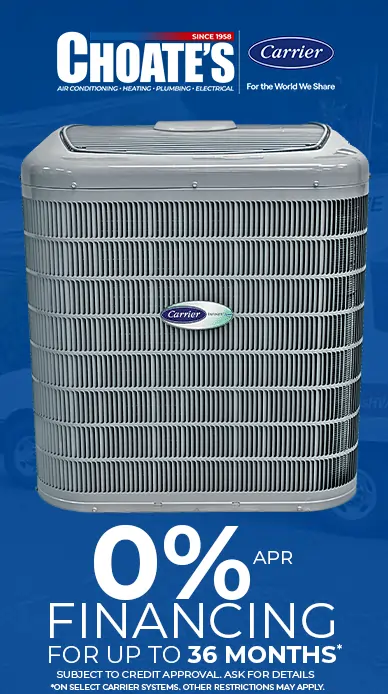901 755 4797
With so much information—and misinformation—swirling around right now, it’s important to understand the day-to-day implications of COVID-19 and what you can do to stay safe not just out of the home but in your home, too. By taking simple steps including hand-washing, social distancing and keeping the air in your home or workplace clean, you can do your part to curb the spread of COVID-19—AKA coronavirus.
And remember, as always Choate’s HVAC is here to support the community. If you have questions or concerns, contact us anytime at 901-755-4797.
So let’s break it down…
What IS COVID-19?
COVID-19 is a type of coronavirus—coronaviruses are actually very, very common. There’s a good chance that, at some point, you’ve had a coronavirus—one of the most common corona-related illnesses is a common cold. More severe strains include Middle Eastern Respiratory Syndrome (MERS) and Severe Acute Respiratory Syndrome (SARS).
This particular coronavirus—COVID-19—typically comes with symptoms like fevers, dry cough, body aches, fatigue and shortness of breath. For many, symptoms are extremely mild and can be treated at home with over-the-counter remedies. Others may require additional care or hospitalization to prevent pneumonia or other elevated symptoms.
What should I do if I have symptoms of COVID-19?
If your symptoms are mild and can be treated with over-the-counter painkillers and rest, stay home and self-treat. Contact your doctor or local department of health—many areas are reporting and tracking all known cases to help curb the spread. Based on your location and the severity of your symptoms, your doctor may direct you to a local COVID-19 testing facility.
If you’re experiencing extreme flu-like symptoms or shortage of breath, go to the ER. However, given hospitals’ limited resources, do not go to a hospital or emergency room with mild symptoms. Not only will you be using resources potentially needed for more severe cases, but you also run the risk of contracting COVID-19 from other patients if, in fact, you don’t have it.
Very professional, caring people to work with. They work as a family. We’ve never had any problems with the work they have performed for us. Their responsiveness is excellent. Go with the best!Dorothy K.
How can I keep from getting COVID-19?
Practice social distancing
Avoid large group settings
While most sporting events, concerts, trade shows and large public events are being canceled, others aren’t. Religious services, grocery stores, shopping malls—they’re all likely to be packed with people, even during the corona outbreak.
Use your judgment when deciding what to attend and what to skip. Many churches and synagogues, for example, are streaming services online, and stores are offering same-day delivery for groceries and other staples. If you have to go, go—but if you can avoid unnecessary risk, it’s always a good idea.
Wash your hands
Sanitize objects and surfaces
How To Make The Air In Your Home Clean And Sanitary
Can I do anything to make sure the air is clean and sanitary?
Think the air quality is good just because you’re indoors? Think again. According to the Environmental Protection Agency (EPA), concentrations of some pollutants can be two- to five-times higher inside than out. While improving indoor air quality isn’t a magic bullet or a guarantee you won’t contract or spread COVID-19, it’s a good start. We’re in an unprecedented state of emergency right now and our shared priority needs to be mitigating risk—and, from our perspective, that means purifying your indoor air. Keeping indoor air clean and purified has, historically, been a powerful step in curbing viruses—the common cold and flu, for example.
Truly improving indoor air quality takes a four-step approach:
- Clean
- Seal
- Filter
- Purify
Keep Your Environment Clean
Consider your air ducts the “lungs” of your home, taking in and expelling air 24/7. Air ducts can get clogged because of dirt, chemicals and debris in the air—your ventilation system circulates and recirculates air up to seven times per day. If there are significantly contaminants in the air, they can build up in your air ducts. Once that happens, circulating air is constantly exposed to that buildup—and, for people with respiratory health issues, allergies or autoimmune disorders, this can cause pain, discomfort or breathing trouble.
Choate’s can deep clean your air ducts and can set an ongoing maintenance schedule to ensure you maintain strong air quality—and that your ducts are always clean, clear and safe.
Besides that, though, when dust and debris build up, air flow can get restricted—when this happens, your furnace and AC need to work even harder to keep your home comfortable. And the harder your HVAC works, the higher your monthly bill will likely be. Keeping air ducts clean will help your system be efficient and effective, while keeping bills lower year-round.
Seal Your HVAC System
Change Out Your Air Filters Regularly
You also want to get into the habit of changing your air filters every 30 days on average for a 1” air filter. To ensure you’re sticking to that schedule, set a reminder on your calendar or tie your filter changes to a monthly bill—every time you pay your electric bill, for example, you also change your air filters.
An alternative in this step of the process would be to upgrade your air filtration system. Thicker air filters provide added protection and filtration for longer periods of time. You will still need to replace the filters, however the frequency will be less often.
Invest in Professional-grade Air Purification
To maximize air purification in your home, consider installing an APCO device. This capture/kill system captures all air running from your furnace,- killing germs, bacteria, odors and, even, flu and other viruses like colds and the flu. By using activated carbon and UV-C light, APCOs are whole-house solutions that can help keep air clean and keep your family healthier.
The most important thing? Don’t panic. We’re learning more about COVID-19 every single day, and we’ll continue to update you on the steps we’re taking to keep ourselves, our customers and our shared community safe. Contact us to learn more and to schedule your clean-air consultation.


